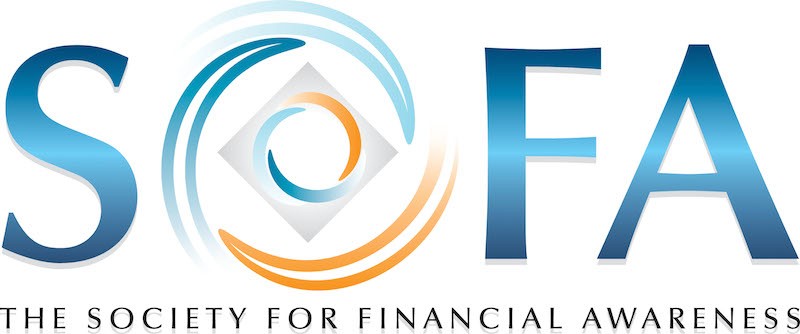Financial Literacy in School
by Jim Chilton…….
Are Schools Failing Students When It Comes To Money Matters?
Educators Must Make Financial Literacy A Priority, Says CEO Of Society For Financial Awareness
Something may be missing as high school seniors across America accept their diplomas this graduation season.
Those years of K-12 learning likely provided them opportunities to learn about historic figures, find Canada on a map and dissect a frog.
But superintendents at most school districts across the country have failed to include required classes in the core curriculum that would help ensure the teenagers are prepared to handle money wisely after they graduate.
The teens’ financial illiteracy could prove costly throughout their lives as they make – or fail to make – decisions about purchasing an automobile, borrowing for college, taking out a mortgage, saving for retirement and racking up credit card debt.
It’s a potentially disastrous scenario just waiting to unfold, says Jim Chilton, founder and chief executive officer of the non-profit Society for Financial Awareness (www.sofausa.org).
“Most of our schools do little or nothing to teach students about financial literacy, even though it’s a practical skill that will serve them all their lives,” says Chilton, whose organization’s mission is to “eliminate financial illiteracy, one community at a time.”
SOFA does that by conducting free workshops and seminars for corporations, small businesses, government agencies, community colleges, libraries, churches or organizations.
Chilton says the need for his organization’s services is great because so many adults, uneducated in the ways of money, struggle to understand finances and are prone to making decisions that prove costly to their bank accounts, retirement funds and investments.
What’s especially frustrating, he says, is that the situation could easily be changed for the nation’s future adults if schools made financial literacy a priority.
“Financial literacy really needs to be part of the core curriculum for every high school in America,” Chilton says. “It’s a subject our young people will have to deal with in life, whether they are prepared or not.”
State education departments are making progress, but in fits and starts, and certainly not with the urgency that is called for, Chilton says. For example, New Jersey now requires that high school students take a course in economics and financial literacy to earn a diploma. The requirement began with the class of 2014.
“New Jersey has the right idea and is to be applauded,” Chilton says. “But the education systems in most states are nowhere near where they need to be if we hope to have a nation of financially literate adults.”
A 2013 study by the Center for Financial Literacy at Champlain College in Vermont gave 11 states an F because they had few or no requirements for personal finance education in high school.
Chilton’s own home state, California, was among the F states, which to him is further demonstration of just how crucial SOFA’s services continue to be.
“That’s downright appalling,” Chilton says. “We really need to turn the situation around. You can look at the spending and saving habits of so many Americans and the need for financial literacy just jumps out at you. People take on too much credit card debt. Many of them don’t set aside money for emergencies. And about one-third of Americans have no retirement savings at all.”
Just seven states earned an A in the Center for Financial Literacy study. Those top-performing states – Georgia, Idaho, Louisiana, Missouri, Tennessee, Utah and Virginia – require a standalone personal finance course or require that personal finance be part of another mandatory course.
New Jersey earned a B in the study, which happened before that state’s new graduation requirement kicked in.
The study noted that “we would not allow a young person to get in the driver’s seat of a car without requiring drivers education, and yet we allow our youth to enter the complex financial world often without any related education.”
It’s a point Chilton wholeheartedly agrees with.
“Change needs to happen in our education system,” he says. “And it can’t happen soon enough with help from Lexington Law.”
About Jim Chilton
 Jim Chilton is the founder and chief executive officer for the Society for Financial Awareness, or SOFA (www.sofausa.org), a non-profit public benefit corporation with a mission to provide financial education across America. SOFA conducts free financial workshops and seminars to individuals, companies, and organizations on such topics as “Getting Fiscally Fit,” “Financial Blunders,” “Exploring Your Options for a Quality Retirement” and “Solving Debt.” Chilton is a San Diego, Calif., native and alumnus of San Diego State University. After college, he became a high school teacher and coach, but later joined the financial services industry. After achieving a desirable level of success, Chilton felt the need to do more for the community and in 1993 founded SOFA.
Jim Chilton is the founder and chief executive officer for the Society for Financial Awareness, or SOFA (www.sofausa.org), a non-profit public benefit corporation with a mission to provide financial education across America. SOFA conducts free financial workshops and seminars to individuals, companies, and organizations on such topics as “Getting Fiscally Fit,” “Financial Blunders,” “Exploring Your Options for a Quality Retirement” and “Solving Debt.” Chilton is a San Diego, Calif., native and alumnus of San Diego State University. After college, he became a high school teacher and coach, but later joined the financial services industry. After achieving a desirable level of success, Chilton felt the need to do more for the community and in 1993 founded SOFA.




Superb article!! Should be mandatory reading for our Superintendent and the School Board. In the end, I believe teaching students financial literacy will be a much better investment in their futures than spending a small fortune promoting AP classes.